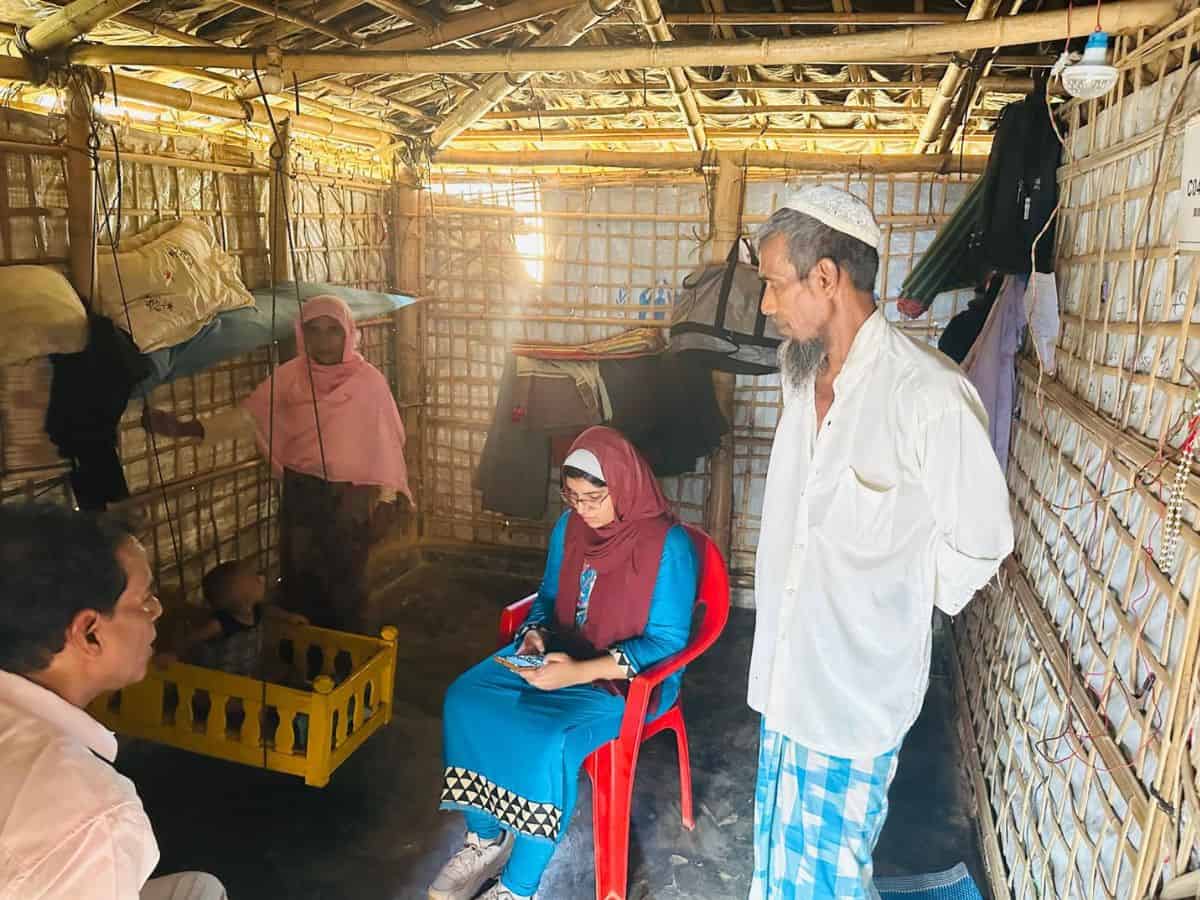
Currently visiting Bangladesh with the Deccan College of Medical Sciences Alumni Association of North America (DAANA), I have witnessed firsthand the plight of the Rohingya, often described as the world’s most discriminated people. The Bangladeshi Government’s efforts in providing aid to these refugees are commendable, yet the international community’s response remains woefully inadequate.
The rising violence against minorities globally is a pressing concern, and the apathy of media outlets, politicians, and international organisations towards the Rohingya crisis is deeply troubling.
Despite widespread beliefs that other crises are more urgent, this does not excuse the international community’s failure to continue funding and supporting this displaced ethnic group. The Rohingya deserve a louder voice amidst the suffering and hostility they have endured.
The Rohingya story
The Rohingya Muslims are Myanmar’s largest Muslim population, descendants of Arab traders who assimilated into the region.
Most of them, who once lived in the Rakhine state, have now sought asylum in neighbouring countries like Bangladesh, fleeing persecution from the Tatmadaw (Burmese militia). Despite their deep-rooted ancestry, the Myanmar government repeatedly refuses to acknowledge them as their own. The 2017 crisis saw the Myanmar government committing acts of genocide, persecution, and numerous other human rights atrocities against the Rohingya, including burning their villages and assaulting women.
According to Human Rights Watch and BBC News, nearly 288 villages in northern Rakhine were burned down post-2017. Médecins Sans Frontières (MSF) reported that 6,700 Rohingyas, including at least 730 children under the age of five, were killed in the month following the outbreak of violence. These devastating statistics underscore the severe impact on the country’s stability and democracy. Ethnic cleansing on such a scale could potentially embolden other regimes to follow suit.
As of 31 December 2023, 971,904 Rohingya refugees have been documented, with more than half being children. In Cox’s Bazar District and Bhasan Char Island of Noakhali District, 33 camps house these refugees, with Kutupalong being the largest refugee settlement in the world, home to over 600,000 refugees.
Personal account
The Bangladeshi government is providing asylum and basic necessities to these refugees, but the displaced Rohingyas often feel disconnected from their new environment.
During my visit, I met 60-year-old Mr Hussain, a refugee from Buthidaung, now residing in Madhurachara, Camp 4, Ukhia near Cox’s Bazar, Bangladesh. He shared the cramped and difficult living conditions his family of seven endures in their 7×12 sq. feet bamboo hut with a thatched plastic roof. The hot and humid atmosphere, the struggle for water, and the lack of medical supplies for his young grandchildren highlight the harsh reality faced by many.
Despite these challenges, Hussain finds hope in his faith. He holds no anger towards Islam or his people’s circumstances, firmly stating he would not compromise their religious way of life. His belief that coming to Bangladesh was a better decision than staying in Myanmar, despite severe PTSD from the journey and past persecution, speaks volumes about his resilience.
This crisis is not driven by political or economic agendas but is a deeply human issue. Hussain’s story exemplifies the extraordinary resilience of the Rohingya in the face of unimaginable fear and danger. The global community must recognise this and act.
The HOPE Hospital for Women, where I volunteered, has been a beacon of support, providing quality health services to marginalised populations in rural Bangladesh.
Since the 2017 Rohingya crisis, they have aided over 1 million refugees in Cox’s Bazar and earned multiple awards for their humanitarian service. HOPE Foundation runs one of the main five field hospitals serving the 33 camps, focusing on women and children, and provides 24/7 medical care to the refugees. However, continuous funding is crucial to sustain these efforts.
It is imperative for us to support foundations like HOPE by donating any possible amount to ensure they do not run out of resources. Saving the Rohingya and improving their living conditions requires collective action. As a community, both within the Deccan Alumni Association of North America (DAANA) and globally, we can make a significant difference.
“The future depends on what we do in the present.” – Mahatma Gandhi
Author Bio
Noor Moizuddin was born in Marshfield, Wisconsin and is will start her 12th grade at Brighter Horizon Academy, Texas, USA in July.
Her parents are alumni of Deccan College of Medical Sciences, Hyderabad, who work as Specialist Consutling Physicians in Dallas, Texas.
She is passionate about being the voice for the underprivileged, and is currently volunteering in Rohingya Refugee Camps, Cox Bazar with HOPE Foundation of Women’s and Children of Bangladesh. She desires to specialize in Chemistry and Forensic Sciences after graduating from her high school.



